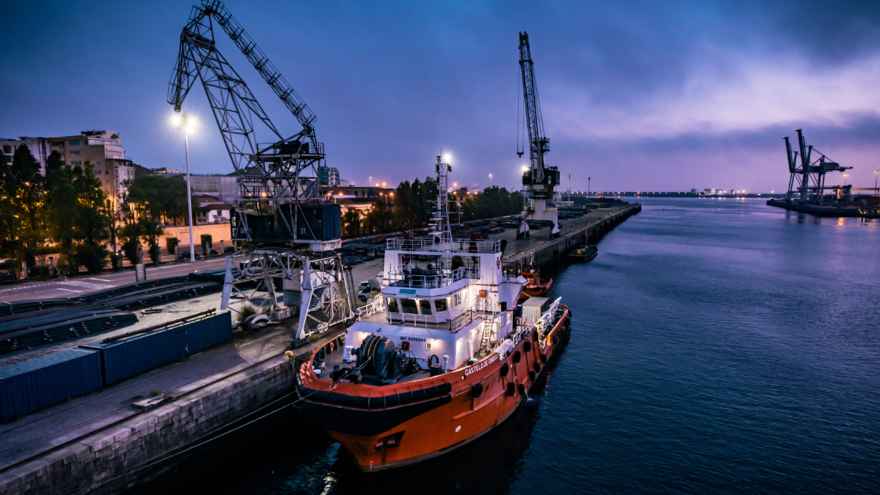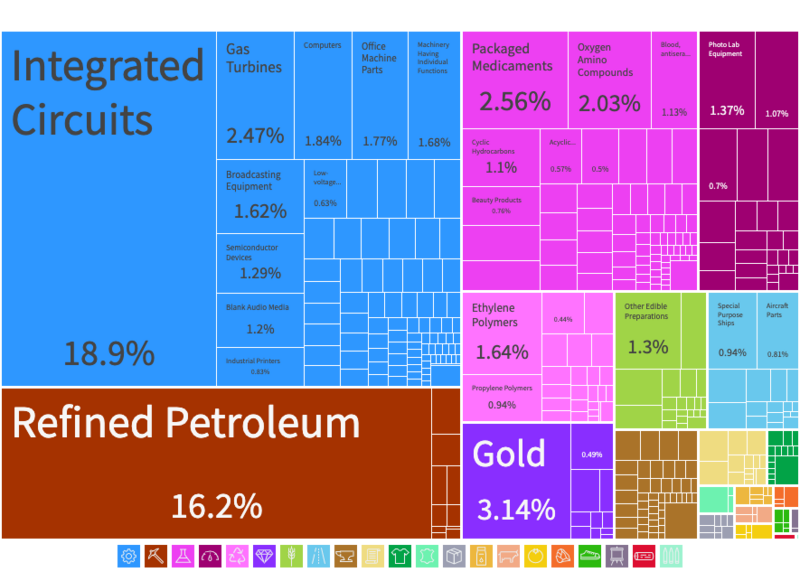
Emily Ann Peterson here! I'm in grad school at the moment, pursuing an Master of Business Administration and focusing on the topics of coercive control, psychological marketing practices, and the power of (cult) influence. Below is an assignment I recently turned in (for an A+!) and I thought y'all might appreciate peeking into what I've been up to in the land of academia!
By comparing and contrasting the GDP, ECI rankings, product differentiation in exports, and anecdotal evidence from Singapore and the Democratic Republic of the Congo, we find evidence that economics is an ecofeminist issue and that ecofeminist theory can influence the global economy. We also find that a country's decision-makers have a substantial economic incentive to create ecofeminist-influenced policies, standards, and regulations affecting domestic and foreign business development, trade, and commerce. Traditionally, ecofeminists are opposed to globalization. However, applying ecofeminist theories to commerce and global trade policies can reduce the masculine domination of nature and women. A country pursuing equal gender rights and protecting the environment (Figure 4) rather than exploitation and inequality (Figure 7) creates significant economic benefit and fiscal stability for its citizens (Figure 1).
Ecofeminist theory claims that the domination of women and nature are inextricably linked. Global economics and trade policies are no exception to applying these theories as they are directly related to the domination of women and nature. We see this destruction of women and nature through the issues that globalization exacerbates, like labor rights, environmental sustainability, and income equality. A country's policymakers can foster an economic environment that promotes an increase in global trade. They can reduce tariffs, lower regulations for exports, and even increase standards for eco-friendly product manufacturing. These policies do not motivate domestic businesses to make strategic decisions representing a country's best interests for its citizens and nature. Whether ecofeminists like it or not, we all live in a globally expansive, fully-indoctrinated, patriarchal, capitalist economy. Capitalist economies tend to create fiscally motivated national policies, foreign and domestic economics, and global trade strategies.
We see the positive and negative effects of a global patriarchal capitalist economy through comparing a country's Economic Complexity Index ranking. ECI rankings are the measurement of an economy's capacity of its spectrum of economic activities. Policymakers can use their country's ECI ranking to anticipate economic growth and changes in income inequality and emissions. These predictions can promote eco-friendly and more sustainable trade regulations and provide a numerical goal for nurturing a national economic environment that supports the United Nation's 2030 Sustainability Development Goals. (Links to an external site.) When ecofeminists look to a country's ECI ranking, they can analyze trade policies, standards, and inclusive development. This economic measurement can further ecofeminist activism, strategies, and investments.
Comparing ECI rankings from Singapore and the Democratic Republic of the Congo makes for an excellent example of applying ecofeminist theories. These two countries have a vast difference in both GDP and ECI rankings (Links to an external site.) (Figure 1). Singapore has a much higher GDP of $364 billion and an ECI ranking of 6 out of 137 countries. Singapore also has a broader product diversity than the Democratic Republic of the Congo, which has a lower GDP of $47.2 billion and an ECI ranking of 131 out of 137 (Figure 1).

Additionally, according to the Observatory of Economic Complexity (OEC), a country's "product space can be used to predict future exports since countries are more likely to start exporting products that are related to current exports." The product space in the Democratic Republic of the Congo (Figure 5) displays their choice to trade fewer types of products. Their top three exports represent 96.78% out of only 381 total product exports: metals (68.89%), mineral products (23.67%), and precious metals (4.22%). Ecofeminists frown upon the industrialization, commodification, and exploitation of a country's non-renewable resources. They would disapprove of the Democratic Republic of the Congo exporting products like copper, cobalt, and diamonds. All three of those are incredibly damaging to the Democratic Republic of the Congo's economic and ecological sustainability.
Conversely, Singapore has a broader dispersal and greater number of products in their product space (Figure 2). From this, we can make predictions that Singapore will continue to co-export a wider variety of products than the Democratic Republic of the Congo. We can see the results of eco-friendly trade policies through the makeup of products that they export. These policies can incentivize businesses to produce products that either benefit or damage women and nature. Singapore's top three exports represent a total of 54.01% of their 1,189 total exports, comprised of machines (21.52%), mineral (17.32%), and chemical (15.17%) products. Their overall export composition requires much less exploitation of the earth's non-renewable resources and increase opportunities for women. This is the opposite effect of what the Democratic Republic of Congo's product composition of exports do for nature and women.
Anecdotally, Singapore is known for its focus on green urban spaces, equal rights, comparable pay for comparable work, financial security, and its pursuit of the title of the World's Greenest City. Singapore is certainly not the pinnacle of gender equality. However, they continue to display an interest in the welfare of their citizens. Their ecofeminist-leaning policies are seen as a long-term goal for all citizens to be homeowners. When comparing evidence of this for these two countries, Singapore has a rate of homelessness (.018 per capita) about 96 times lower than the Democratic Republic of the Congo (1.729 per capita).
Economic issues in both countries are a perfect example of how the intersection of 1) feminism, 2) science, development, technology, and 3) native, indigenous, local perspectives encompass ecofeminist theory. As a result, economic measurements, like GDP and ECI rankings, empirically confirm that ecofeminist economic theories promote nature and women's health. We see this connection with the evidence that the Democratic Republic of the Congo is currently dealing with and will continue to struggle with economic and ecofeminist issues like homelessness and water access. Compared to Singapore, the Democratic Republic of Congo has relatively poor access to water, dangerous labor regulations, and little to no standards for the regeneration of its natural resources, which are the bedrock of its ongoing global trade. If the Democratic Republic of the Congo implemented ecofeminist policies, it would directly benefit their national healthcare, economic sustainability, education, and especially a woman's access to equal opportunities.
Therefore, economic policies are an ecofeminist issue because when ecofeminism influences a country's economic policy-making, that country is more likely to find ecological sustainability, financial prosperity, and equality for all citizens, including women. Ecofeminists and policymakers alike would do well to pay attention to a country's economic measurements for decision-making in business, global trade, and economic development.
All figures are sourced from OEC.
Figure 1: 2018's ECI Rankings
Figure 2: Singapore's Product Space
Figure 3: Singapore's Stacked Product Export Timeline
Figure 4: Singapore's Product Export Tree
Figure 5: The Democratic Republic of the Congo's Product Space
Figure 6: The Democratic Republic of the Congo's Stacked Product Export Timeline
Figure 7: The Democratic Republic of the Congo's Product Export Tree
References
Crittenden, C. (2000). Ecofeminism Meets Business: A Comparison of Ecofeminist, Corporate, and Free Market Ideologies. Journal of Business Ethics, 1, 51–63.
Economic Complexity Rankings (ECI). (n.d.). OEC - The Observatory of Economic Complexity. Retrieved February 8, 2021
Homelessness and human rights. (n.d.). OHCHR . Retrieved February 8, 2021
Kok Hoe, N. (n.d.). Homeless in Singapore: Results from a Nationwide Street Count. Lee Kuan Yew - School of Public Policy. Retrieved February 8, 2021
More Than 1 Million People Without Shelter in DR Congo at Risk of Diseases | Voice of America - English. (n.d.). Voice of America.
Singapore (SGP) Exports, Imports, and Trade Partners. (n.d.). OEC - The Observatory of Economic Complexity. Retrieved February 8, 2021
The Big Read: Gender equality in Singapore remains elusive amid entrenched attitudes about women's roles - CNA. (n.d.).
Thelwell, K. (2020, August 3). Homelessness in the Democratic Republic of the Congo. The Borgen Project
What does Democratic Republic of the Congo export? (2013-2018). (n.d.). OEC - The Observatory of Economic Complexity. Retrieved February 8, 2021
What does Democratic Republic of the Congo export? (2018) | OEC - The Observatory of Economic Complexity. (n.d.). OEC - The Observatory of Economic Complexity. Retrieved February 8, 2021
What does Singapore export? (2013-2018). (n.d.). OEC - The Observatory of Economic Complexity. Retrieved February 8, 2021
What is Economic Complexity? (n.d.). OEC - The Observatory of Economic Complexity. Retrieved February 8, 2021

Comments